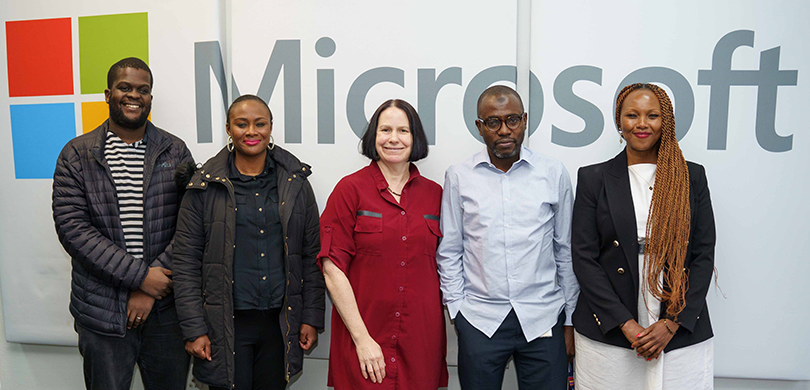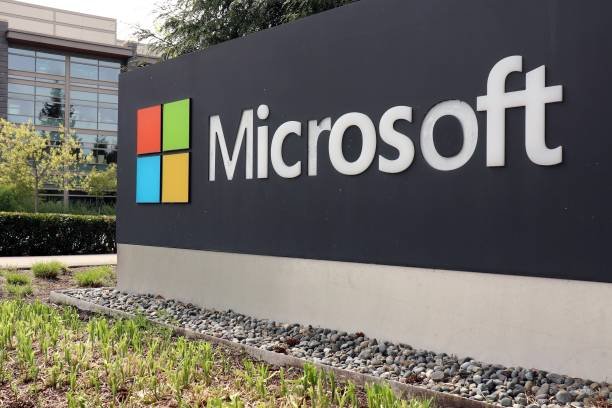American multinational, Microsoft has said the African continent has the potentials to shape the future of work as large language learning models (LLMs) evolve and the environment for Artificial Intelligence (AI) applications is still in its infancy.
In the company’s whitepaper tagged:” AI and the Future of Work in Africa” in collaboration with industry African experts, said about One billion Africans currently under the age of 35 with the continent projected to be home to almost half of the world’s youth population by the turn of the century, making the continent is poised to make up a significant portion of the global workforce.
The Chief Technology and Solutions Officer at Microsoft Africa, Ravi Bhat said: “We see a significant role for generative AI to not only transform work environments but also foster opportunities for the youth to create jobs, innovate, and drive economic growth and stability across the continent.”
The whitepaper highlights the potential of generative AI to significantly alter knowledge worker jobs, influencing the type of work done, the skills required, and the outputs produced. McKinsey research suggests that generative AI could boost labor productivity growth by up to 0.6% annually through 2040, depending on the rate of technology adoption and the redeployment of worker time into other activities.
Meanwhile, the Director at Microsoft Research Africa, Jacki O’Neill said: “Generative AI has significant potential to advance human capabilities. As more people across Africa access GenAI tools through their internet-enabled devices and more affordable data, the barriers to access are being reduced, and opportunities for skilling are increasing.”

The whitepaper underscores that not only information workers stand to benefit from GenAI. The transformative potential of GenAI extends to industries such as agriculture, healthcare, and services. However, equipping the youth with the necessary skills for an AI-disrupted labor market is crucial to ensure they are not left behind in this technological shift.
Building skills across the spectrum—from deploying and using GenAI tools at work to developing innovative applications on top of these models, and advancing in machine learning, natural language processing, human-computer interaction, cybersecurity, and systems—will give Africans the best chance to create dignified jobs and add value globally.
“Investing in this range of skills gives Africans the best opportunity to create dignified, appropriate jobs, adapt AI sensitively to indigenous knowledge, and create new value chains and better AI systems that reflect human-centered and community values,” adds O’Neill.
Culturally and linguistically sensitive design can make GenAI more tailored to individual workers, learning from interactions and becoming a personalized tool that respects privacy and enhances unique skills. It can serve as a guide to foster inclusivity and showcase the diverse abilities of African workers, and as a community-focused tool supporting collaborative work and communal development.
For entrepreneurs, GenAI can assist in decision-making, risk assessment, and data analysis, empowering their ventures. In the informal sector, tailored GenAI tools will elevate capabilities, providing customized assistance for unique needs.
The whitepaper emphasizes the need for proactive governance, inclusive design, investment in education, and commitment to regulatory and ethical standards to ensure a beneficial outcome with GenAI. This collective responsibility involves policymakers, technologists, and citizens alike.
“Technology alone cannot solve the challenges that our youthful continent faces. We need to create policies and practices to ensure that GenAI, and AI in general, is deployed responsibly with AI-related labor being valued and dignified. It requires the macro-economic, labor, and regulatory markets to adapt and be capable of supporting positive change,” adds Bhat.
ALSO READ: U.S: STARLINK INTENSIFIES EFFORTS FOR DIRECT-TO-SMARTPHONE CONNECTIVITY WITH NEW SATELLITE LAUNCH
The AI revolution in Africa is not just a possibility but is already underway. Microsoft is committed to working alongside individuals, governments, partners, and stakeholders across the continent to prepare for a future where AI is intricately woven into the fabric of work and society in Africa.




